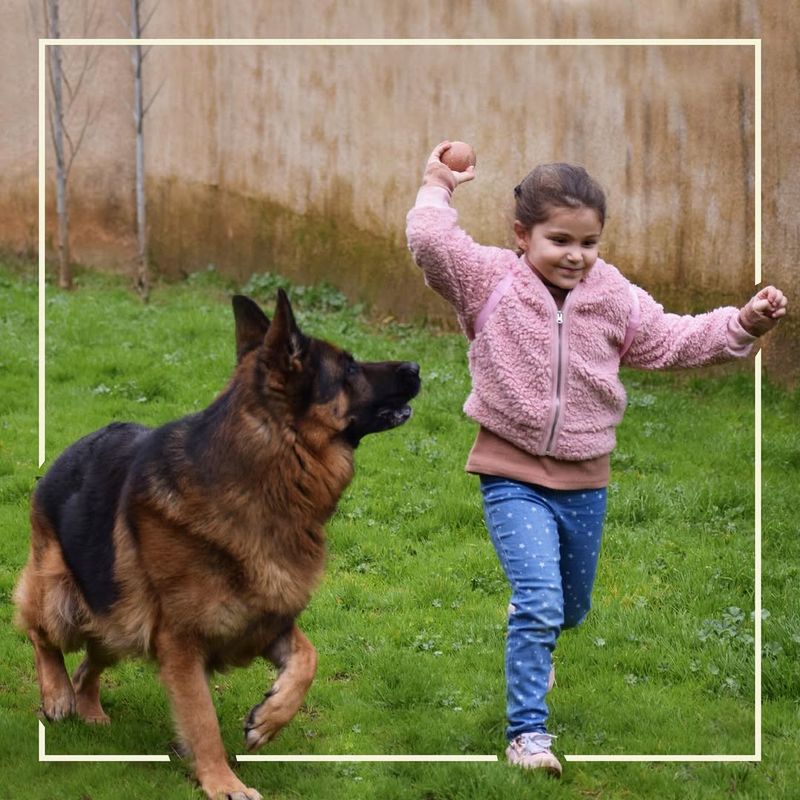German Shepherds, known for their intelligence and loyalty, are often misunderstood when it comes to aggression. Many myths surround their behavior, leading to misconceptions about this lovable breed. Let’s explore these common misunderstandings and uncover the truth.
Myth 1: Aggressive by Nature
Many believe German Shepherds are naturally aggressive, but this is a misconception. In reality, these dogs are known for their loyal and protective nature.
When properly trained, they exhibit calmness and friendliness. Like any breed, their behavior is significantly influenced by their upbringing and environment.
Owners can foster a well-mannered companion with the right guidance and socialization.
Myth 2: All Bark, No Bite
It’s often said that German Shepherds are all bark and no bite, but this isn’t entirely true. They may bark to alert their owners but can also act if they perceive a real threat.
Their protective instincts make them excellent watchdogs, yet they aren’t aggressive without cause.
Understanding their signals can help owners decipher when their pet is merely vocalizing versus when there’s genuine concern.
Myth 3: Only Suitable for Work
Some assume German Shepherds are only suitable for work, such as police or service dogs. While they excel in these roles, they also make wonderful family pets.
Their intelligence and adaptability allow them to fit into various lifestyles.
With proper training and care, they can be loyal companions, bringing joy and security to any home.
Myth 4: Aggression Is Inherited
A common belief is that aggression in German Shepherds is inherited. However, genetics play only a small role compared to upbringing and training.
Exposure to positive experiences and consistent guidance shapes their temperament.
Focusing on socialization from a young age can prevent aggressive behaviors, highlighting the importance of responsible ownership.
Myth 5: Hard to Train
Some claim German Shepherds are hard to train, but their intelligence and eagerness to please make them one of the most trainable breeds.
They thrive with structured training routines and positive reinforcement.
Owners who invest time and patience in training will find their German Shepherd to be an obedient and responsive companion.
Myth 6: Not Good with Children
People often think German Shepherds aren’t good with children, yet they are known for their protective and gentle nature around kids.
Through proper socialization and training, they can become loving family members.
Their loyalty and patience make them excellent companions for children, fostering a nurturing and secure environment.
Myth 7: Needs Constant Activity
While German Shepherds are energetic, the myth that they need constant activity is exaggerated. They do benefit from regular exercise but also enjoy downtime.
Balancing activity with relaxation ensures a happy and healthy dog.
Engaging them in mental stimulation can also satisfy their need for entertainment without requiring a constant physical challenge.
Myth 8: Always Dominant
The notion that German Shepherds are always dominant is misleading. Their behavior depends on training and socialization.
With proper guidance, they can exhibit balanced behavior and respect toward other animals.
Owners should focus on positive interactions to prevent dominance issues, ensuring harmonious relationships within the home and community.
Myth 9: Not Suitable for Apartments
Many believe German Shepherds can’t live in apartments due to their size, but this isn’t true. They can thrive in various living situations with adequate mental and physical exercise.
Regular walks and playtime ensure they remain content in smaller spaces.
Commitment to their needs allows them to adapt well to apartment living.
Myth 10: Can’t Be Around Other Animals
It’s often thought that German Shepherds can’t be around other animals, yet they can coexist peacefully with proper socialization.
Introducing them to other pets gradually and positively is crucial.
Many German Shepherds enjoy the company of other animals, forming strong bonds and adding to a harmonious household.
Myth 11: Only for Experienced Owners
Some say German Shepherds are only suitable for experienced owners, but they can be a great choice for first-time owners willing to learn.
Their intelligence and loyalty make them rewarding companions.
Beginners must commit to training and understanding the breed’s needs, leading to a fulfilling relationship for both dog and owner.
Myth 12: Dangerously Protective
The myth that German Shepherds are dangerously protective stems from misunderstanding their loyalty. While they are protective, they aren’t aggressive without cause.
Proper training helps them differentiate between everyday situations and threats.
Owners can trust their German Shepherd’s protective instincts, knowing that their pet acts with discernment.
Myth 13: Aggression Equals Strength
A misconception is that aggression equals strength in German Shepherds. True strength lies in their intelligence and ability to assess situations.
They are powerful yet gentle, capable of strong bonds with their families.
Recognizing their calm and composed nature can dispel the myth that aggression is a sign of power.
Myth 14: Not Social Animals
Some think German Shepherds aren’t social animals, but they thrive on interaction. Socialization from a young age encourages friendly and approachable behavior.
They enjoy the company of both humans and other dogs.
Creating opportunities for social engagement enriches their lives, making them well-rounded and affectionate pets.
Myth 15: Only Good for Guarding
The belief that German Shepherds are only good for guarding is limiting. They excel in various roles, from therapy to companionship.
Their versatility and intelligence enable them to adapt to different lifestyles and needs.
Embracing their multifaceted nature allows owners to enjoy their dog’s full potential beyond just guarding duties.
Myth 16: Problematic in Public
Some see German Shepherds as problematic in public, fearing they might become aggressive. Yet, with proper training, they can navigate public spaces calmly.
Teaching them to remain composed amid distractions is key.
Responsible ownership and consistency transform them into well-behaved companions, capable of enjoying outings without issue.
Myth 17: Always Needs a Job
While German Shepherds excel in working roles, the notion that they always need a job is overstated. They benefit from mental stimulation but also cherish relaxation.
Finding a balance between activity and leisure keeps them content.
Engaging them in enriching activities at home can satisfy their need for purpose without constant work demands.
Myth 18: Should Always Be Outside
The idea that German Shepherds should always be outside is outdated. They enjoy the comfort of indoor living and being part of the family.
Providing a secure and loving home environment fosters their well-being.
Allowing them indoor companionship strengthens bonds and ensures a happy life.
Myth 19: Aggressive Towards Visitors
A common myth is that German Shepherds are aggressive towards visitors. Proper training teaches them to welcome guests calmly.
Positive reinforcement helps them associate visitors with good experiences.
Owners can ensure their German Shepherd is a gracious host by fostering a friendly and welcoming demeanor.



















